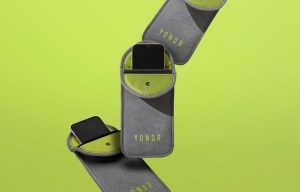Materials, Design and Technology: Wood (General)
Course Code: GEMDTW/GTMDTW
Domain: Technologies
Timetable: Semester 1 and 2
Length of Course: 2 Years
Unit Information
Materials are the basic ingredients of technology. Materials are used to make machines and these machines
use materials to make products. Materials also supply the energy to enable technology to function.
Throughout history, the evolution of technology has been largely determined by the availability of materials.
The strong historical links between materials, design and technology remain significant in society today. As
long as the desire to create new opportunities and to continue to improve our quality of life remains, the
development of materials will continue.
The Materials Design and Technology (General) course is a practical course. The course allows teachers the
choice to explore and use three materials learning contexts: metal, textiles and wood with the design and
manufacture of products as the major focus. There is also the flexibility to incorporate additional materials
from outside the designated contexts. This will enhance and complement the knowledge and skills
developed within the course as many modern-day products are manufactured using a range of different
material types. Students examine social and cultural values and the short-term and long-term impacts of the
use and misuse of materials and associated technologies. Through this inquiry, experimentation and
research, students develop their creativity and understanding of the society in which they live.
Working with materials, students develop a range of manipulation, processing, manufacturing and
organisational skills. When designing with materials, they develop cognitive skills, such as solving problems,
generating ideas, creative design strategies and communicating what they do. This makes them more
technologically literate and, as consumers, enables them to make more informed decisions about the use
and misuse of technology.
The course outcomes are relevant to a number of learning areas, including but not limited to, Technology
and Enterprise, Society and Environment, The Arts, Science and Mathematics. This course also connects to
the world of work, further vocational education and training and university pathways. Students may achieve
vocational education and training (VET) competencies as they complete their design projects, while at the
same time, developing cognitive skills fundamental to designing in a practical context. This process enhances
employability and may lead to further training and employment opportunities in areas that include textiles
and clothing, manufacturing, design, built environment, science and engineering.
The Materials Design and Technology (General) course aims to prepare all students for a future in a
technological and material world by providing the foundation for lifelong learning about how products are
designed and how materials are developed and used.
Year 11
Unit One
Students interact with a variety of items that have been specifically designed to meet certain needs.
Students are introduced to the fundamentals of design. They learn to communicate various aspects of the
technology process by constructing what they design.
Throughout the process, students learn about the origins, classifications, properties and suitability for
purpose of the materials they are using, and are introduced to a range of production equipment and
techniques. They develop materials manipulation skills and production management strategies, and are
given the opportunity to realise their design ideas through the production of their design project.
Unit Two
Students interact with products designed for a specific market. They use a range of techniques to gather
information about existing products and apply the fundamentals of design. Students learn to conceptualise
and communicate their ideas and various aspects of the design process within the context of constructing
what they design.
Throughout the process, students learn about the origins, classifications, properties and suitability for end
use of materials they are working with. Students are introduced to a range of technology skills and are
encouraged to generate ideas and realise them through the production of their design projects. They work
within a defined environment and learn to use a variety of relevant technologies safely and effectively.
Students, in consultation with teachers, select projects of interest and then design and make products
suitable for a specific market.
Year 12
Unit Three
Students develop an understanding of the elements and fundamentals of design and consider human factors
involved in the design, production and use of their projects. They develop creative thinking strategies and
work on design projects within specified constraints. Students learn about the classification and properties
of a variety of materials and make appropriate materials selection for design needs.
Students learn about manufacturing and production skills and techniques. They develop the skills and
techniques appropriate to the materials being used and gain practice in planning and managing processes
through the production of design project. They learn about risk management and ongoing evaluation
processes.
Unit Four
Students learn about the nature of designing for a client, target audience or market. Students learn about
the nature, properties and environmental impacts related to a variety of materials, and production
techniques. Students apply an understanding of the elements and fundamentals of design and consider
human factors involved in their design projects. They develop creative thinking strategies, work on design
projects within specified constraints and consider the environmental impacts of recycling of materials.
Students extend their understanding of safe working practices and contemporary manufacturing techniques,
and develop the knowledge, understanding and skills required to manage the processes of designing and
manufacturing.
Pathway Information
Tertiary
Workforce
Students undertaking this course may wish to consider tertiary studies in:
- Building and Construction
- Cabinet Making
- Flooring Technology
- Furniture Finishing
- Timber and Composite Machining
This course suits direct workforce entry into the following:
- Engraver
- Product Assembler
- Machinist
Additional Information
Estimated Charges: $185 plus materials per year





